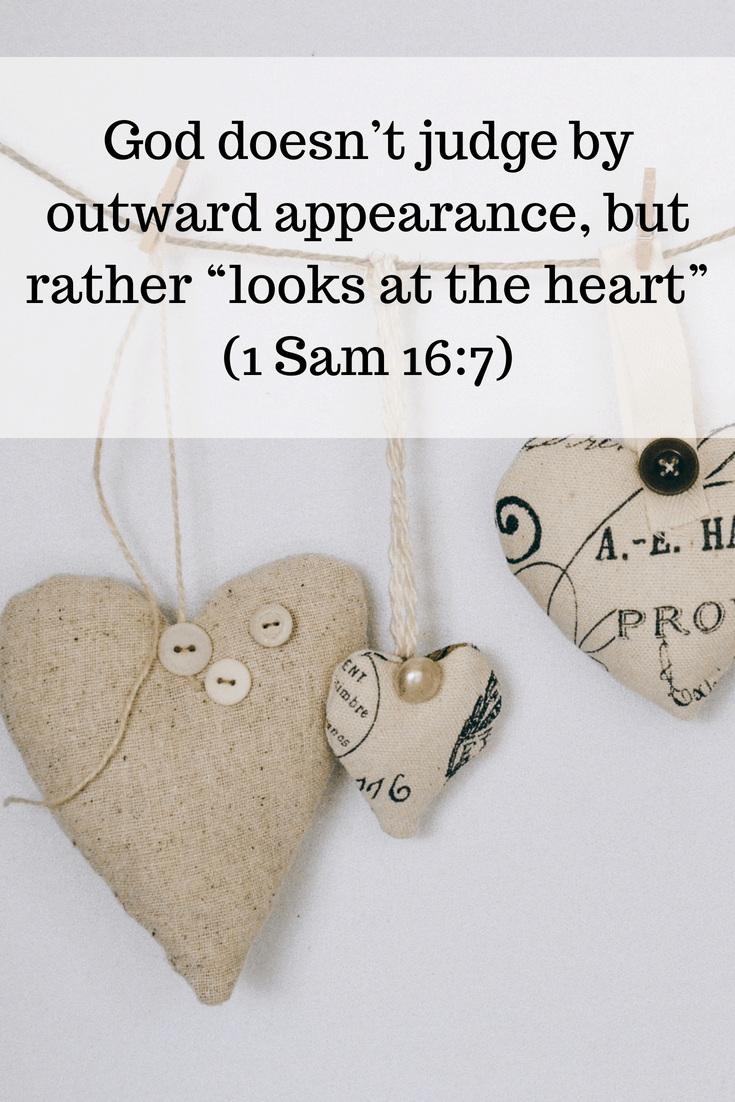The following is adapted from a sermon I gave at our church last week.
It comes with a funny God story: I read this sermon. I write far better than I speak, and so I wrote up the sermon and read it from the front. As it turns out, however, I was missing a whole page. Whoops! I had emailed my sermon to myself, in case something like this would happen, but conveniently left my phone at home. Another whoops!
And so, this sermon itself was an exercise in trust, trusting that God would give me page 4 (my missing page) and speak through me. It ended quite well, in fact, especially with the demonstration of trust, the very principle I was speaking on. ♥
On Tuesday, last week, I said “no” to a job offer. It was one of the scariest things I have ever done.
And I’ve been in lock down in a hospital, hiding in a corner, thinking that I might die execution style.
I’m not sure which was scarier, to be honest.
The job was for a youth ministry position in Toronto. It was part time, paid well, something I’m passionate about, and I have nothing else to fall back on. Totally counterintuitive, illogical, and totally frightening.
Why I said “no” basically comes down to trusting God, which is one of the central themes in the story of Samuel anointing David, the story that forms the basis of this sermon-turned-blog-post.
I had asked God to give me a giant neon, flashing sign as to what to do next. I’m nearly done the PhD. (Yay!) I know I want to work in the church.
So now what?
Well, God opened the Toronto door, but I wasn’t sure if I should walk through it. But why would He open the door if I’m not supposed to go there, right?
It turns out that sometimes God has us do things that may seem counter-intuitive in order to strengthen our faith in him, and our willingness to trust him in all circumstances.
The Samuel and David Backstory
This was the case for Samuel and David.
In 1 Samuel 16, we see God command Samuel to go and anoint a new king, after He rejects Saul (the previous king). Samuel goes to the house of Jesse, and goes through all seven of Jesse’s sons, God having rejected them all, before he gets to David, the youngest, who as out tending sheep in the field.
In fact, we learn that David is the one that God has chosen to be king. "This is the one; anoint him" (1 Samuel 16:12).

What the Story of David Teaches Us about Worldly Standards
David was not the obvious choice for king. He was the youngest brother. Even his father apparently did not think him a suitable candidate, since he didn’t bother calling him in from the fields until Samuel asked, “Are you sure you don’t have any more sons?”
Much earlier in 1 Samuel, we read of Samuel’s successful leading of the people of Israel. The time comes, though, when the people request a king.
Samuel is getting old, and the people do not want his sons (who are corrupt) to lead them.
God tells Samuel to warn the people, when they ask for a King, what they are getting into. They are asking to be ruled by someone other than God and Samuel paints a pretty clear picture of what that will mean: Kings don’t let you live for yourself and do what you want. They will expect you to serve them. They will take your children and your land and your possessions and the Israelites will become slaves all over again to another ruler.
This is a people who are saying to the mighty awesome one and true God who once rescued them from slavery in Egypt that they would rather be slaves to a limited human king.
But the people of Israel are judging things by human standards. “We want to be like the nations around us,” they claim (1 Samuel 8:19).
The fact is that we are often judging by worldly standards. This was the case with the people of Israel. It was the case with Samuel and David. And, in fact, it was the case for me last week as well.

My worldly standards were those of wealth, comfort, and safety.
I wanted to rely on a paycheck. I would feel safe if I had employment lined up that would help to pay the bills. In fact, I have an interview coming up on the 20th for an administration job that I want more than I want the youth job, and perhaps for better reasons. My original plan was to take the second interview with the youth job (which would have happened before the admin interview, on the 19th), to keep my options open.
What if the admin job doesn’t work out? I need something, don’t I?
Keeping this option open until I know about the other is safe.
I should tell you what happened after I got the sort-of offer of the youth ministry job, to clarify the story.
They said they were interested. They said, “Let’s meet again next week to discuss a potential youth program and show you around the church.”
I was excited about working with youth and advancing the Gospel, but anxious about the location. 2 evenings away from home plus Sundays. The husband works the rest of the evenings, so we’d basically never see each other. Maybe Saturdays.
But there’s a closer job. One that wouldn’t require evening work (so I could keep volunteering with the youth group here) and one that fits around my family’s schedule.
But I don’t have that one yet. Who in their right mind is going to step off of one boat – where it’s safe – before there’s another boat to step onto? And aren’t I really just making excuses?
The morning after I got the sort-of offer I called a friend, who recommended that we go walk a labyrinth nearby to see if God has any answers to this “which job” problem.
In fact, God gave both of us the passage about the lilies in the field and not being concerned about money. “Look at the lilies and how they grow. They don’t work or make their clothing, yet Solomon in all his glory was not dressed as beautifully as they are. And if God cares so wonderfully for flowers that are here today and thrown into the fire tomorrow, he will certainly care for you. Why do you have so little faith?..."
(Ouch, right?)
"… And don’t be concerned about what to eat and what to drink. Don’t worry about such things. These things dominate the thoughts of unbelievers all over the world, but your Father already knows yours needs” (Luke 12:27-30).
This came to both of us, separately. Coincidence?
One of my biggest reasons for taking the job in Toronto would be money. It’s a good paycheck. I need a good paycheck.
If I’m taking money completely out of the picture, which apparently God wants me to do, I can do everything else that I would want out of this position by volunteering with our youth group here at our own church.
But I was scared. Scared of stepping out of the boat without a life raft. Shouldn’t I wait for a life raft to come by? Those waves look awfully big.
And I could, really, if I just dug my heels in and did it, run the youth program in Toronto, do the administration too if they want me, and run my Navigators ministry (another big, fat stepping out in faith project).
But I would be acting out of fear. I would be doing the second interview for the youth ministry job because I was afraid of not getting the admin job.
And if I took the youth ministry job, it would not be because I was excited to grow a youth group (I am, but maybe not so much one an hour away) but because I was afraid of what would happen come September if I don’t have a job lined up.
I would be placing my trust in circumstances, in job interviews, and in paychecks, instead of in God.
And when I was talking with another friend about this in a coffeeshop, I asked why God had opened this door if I wasn’t supposed to take the job. She had, wisely, suggested that perhaps my anxiety over the situation and the fact that it would decimate our family life was perhaps God closing the door.
“Yeah, but….”
“Who are you trusting, in this scenario?” She asked. “God, or a paycheck.”
“Definitely the paycheck. Definitely not God.”
And in the resulting conversation she essentially preached my sermon (my original David and Samuel sermon that I wrote before all this happened) back to me.
And what that looked like was something like this.
Who Do You Trust?
What do you place your trust in? Do you really trust God?
(My answer to this was emphatically “no”. I know that I am supposed to. And I know, theoretically, that he works all things for my good. But deep down inside me there’s something that says, “There is no way that this is all going to work out. I have to power through this and fix it on my own.”
In fact, I have said, out loud, to God, “No. No, I don’t trust that you will make all this right. I don’t trust that you will provide something more fitting. I don’t trust that everything will work out. I need to do this completely under my own steam. I need this thing, right here, right now.”
Sounds familiar, doesn’t it? Adam and Eve also did not trust God and wanted to do things their own way. They tried to determine for themselves what was right and what was wrong. And look how that turned out.)
Well, David really trusted God. We learn, in this passage from 1 Samuel, that God doesn’t see things the way we see them. “People judge by outward appearance, but the Lord looks at the heart.” And what we find in David’s heart is this:
- He is brave. Later in the story, he kills the giant, Goliath, when everyone else is afraid to do battle with him. We also learn that, as a shepherd, he rescues lambs from the mouths of lions and bears. He is able to do this because he trusts that God is in complete control.
- David has a truly grateful heart. Psalm 30: “I will give thanks unto thee forever”.
- David is reliable. He keeps the sheep, which is a lonely and dirty job, but he does it because that’s what he has been assigned to do. He even places his life on the line to protect those sheep.
- David has a truthful nature. When he sinned (a pretty massive sin involving adultery and what amounts to murder), he admitted his sin to God and was forgiven.
- David has a transparent life. He prayed (Psalm 26:2) that God would examine his life. “Search me, O God, and know my heart: try me, and know my thoughts.” (I take comfort in the fact that at least I am honest when, in my biggest moments of doubt, I say to God “Umm….I don’t really think you’ve got this.” Transparency is better than the alternative. I mean, really, God knows what’s in our hearts anyway. I might as well be honest.)
- David was confident in God’s power and trusted that God would see him through life’s struggles. When he offers to do battle with Goliath, he displays this confidence in God: “The Lord who rescued me from the claws of the lion and the bear will rescue me from this Phillistine!” (1 Sam 17:37). David has a true and genuine faith, a faith so strong that he can approach a nine foot giant in battle with only 5 stones and a slingshot and trustthat God will see him through.
Imagine having this kind of faith in God, this kind of trust that God will see you through life’s challenges and that he will work all things for your good.
The fact is that God sees all of this in David. God knows David better than David knows David.
God knows you better than you know you.
When the time comes to select a new king, God doesn’t judge by outward appearance, but rather “looks at the heart” (1 Sam 16:7). What this tells us is that the world’s standards are different than God’s standards.
We see this in 2 Corinthians today as well: “We have stopped evaluating others from a human point of view.” We, too, are not to judge things by their appearances, by the standards of the world. God and the world do not have the same perspective on life.
The world values wealth, reputation, comfort, stability…. What God wants from us first and foremost is a heart that trusts Him, that follows him even when the standards of the world suggest that doing so is foolish.

The World's Standards v. God's Standards
We see this in God’s rejection of Eliab. According to the world’s standards, where success is measured by strength, power, wealth, and reputation, we would expect Eliab to be chosen king because of his position in the family.
We learn later, though, that Eliab has a temper and he is distrustful of David (perhaps signalling a nature that is more generally distrustful). The choosing of David inverts the hierarchy of world.
The world judges according to what you have, what you do, and what people say about you. (These were the temptations that the devil used against Christ in his 40 days in the desert.)
David, being the youngest, had nothing. What he did was to tend the sheep, a dirty and thankless job that came with no power or reputation, and what people said about him was, basically….well, not much. He wasn’t even considered as a choice for king.
According to the standards of the world, he wasn’t even in the running.
But God had other plans.
And I think that God chose David primarily because David trusted God in all circumstances.
His bravery came from his belief that God would work all things for his good. He was truthful, reliable, grateful, and would follow God wherever He led him.
The kind of trust in God that David demonstrates is amazing. How many of us would walk up to an armed giant with nothing but a slingshot and a handful of stones and say, “I trust that God’s got this.”
As we see in David, sometimes we need to do foolish things in order to build that trust and to strengthen our faith.
Like a mustard seed, even a small amount of faith (recall that Jesus tells Peter, as he steps out of the boat onto the water, that he has a little faith) can grow into something strong and magnificent.
David’s trust in God allowed him to rescue sheep from the mouths of lions, to defeat Goliath, the nine-foot giant, with only a handful of stones, and to conquer countless enemies as king of Israel.
If we never practice trusting, however, we cannot expect that trust, that faith, to grow.
And that’s how we come back to my turning down the job offer. For me, this was an exercise in trust. Jesus, in the Gospels, says “Do not be afraid. Just trust me.” (Luke 8:50 – paraphrase)
God knows that I am bad at that. Here was an opportunity to practice it.
And so, to end, I would like to ask you a question, to ask you to really examine your own heart and to explore, honestly, who is it that you trust?

very well written. I guess we all have to learn to trust God in our own way.
Comments are closed.